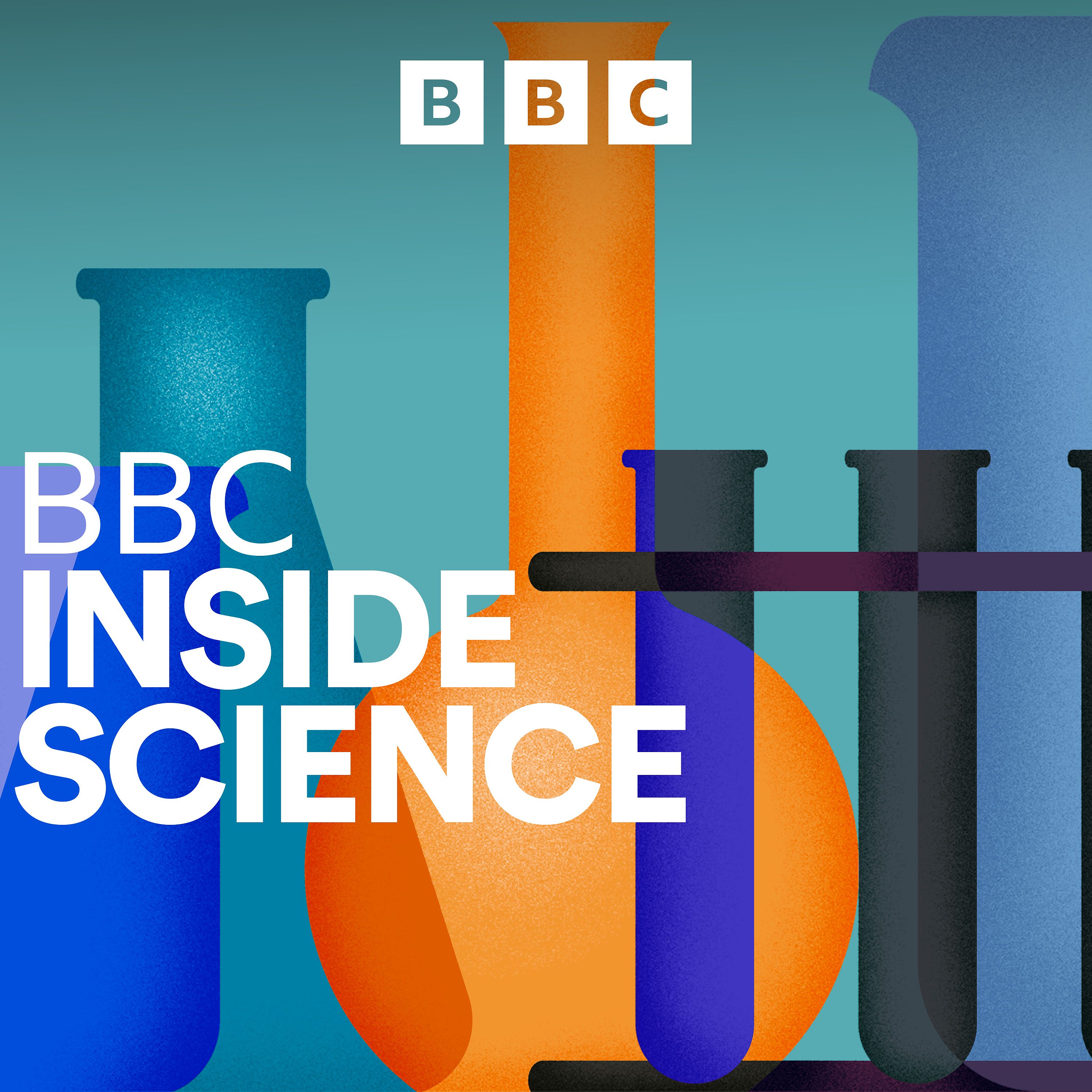

BBC Inside Science
BBC Radio 4
A weekly programme that illuminates the mysteries and challenges the controversies behind the science that's changing our world.
Episodes
Mentioned books

7 snips
Nov 28, 2024 • 28min
Spooky Science
Join Tim O’Brien, an astrophysicist and space enthusiast at Jodrell Bank, as he takes us on a cosmic Halloween adventure. Discover what celestial wonders light up the dark night sky and explore the fascinating world of medicinal leeches, reshaping our understanding of these often-misunderstood creatures. Delve into the spooky science behind zombie folklore, parasites, and the shocking problem of pumpkin waste, urging sustainable alternatives for our Halloween festivities. It's a delightful blend of science, myths, and ecological wisdom!

24 snips
Nov 21, 2024 • 28min
Whatever happened to graphene?
Sir Andre Geim, Nobel Prize winner and co-discoverer of graphene, reflects on the journey of this revolutionary material from its simple discovery to its potential yet unrealized applications. He discusses graphene's promising uses in sports gear and construction, as well as innovations like graphene-enhanced wool insulation. Geim also addresses the balance between initial expectations and the modest pace of integration into everyday products, while sharing anecdotes about the excitement and skepticism surrounding graphene's commercial future.

25 snips
Nov 14, 2024 • 28min
Are our carbon sinks failing?
Mark Maslin, a climate scientist from University College London, dives into the alarming collapse of Earth's natural carbon sinks, crucial for absorbing half of our pollution. He discusses the dire need for reforestation and enhancing these ecosystems amidst a climate crisis fueled by greenhouse gas emissions. Alongside this, the podcast touches on a controversial Nobel Prize in Physics awarded to AI researchers and explores the fascinating impact of gaming on cognitive skills versus traditional exercise.

Nov 7, 2024 • 28min
Should we bring back extinct animals?
Brittany Schmidt, a NASA astrobiologist on the Europa Clipper mission, joins Ben Lam, CEO of Colossal Biosciences, and Tori Herridge, an expert on mammoths. They dive into the fascinating realm of de-extinction, focusing on the potential resurrection of woolly mammoths. The discussion touches on the ethical and ecological implications of bringing back extinct species. Additionally, insights on the Europa Clipper's quest for signs of extraterrestrial life highlight the intersection between space exploration and life beyond Earth.

10 snips
Oct 31, 2024 • 28min
Could coal shut-down mark new era for energy?
Paul Eakins, an expert in energy policy, discusses the closure of the UK’s final coal-fired power station and its potential to usher in a new era of renewable energy. Deborah Greaves emphasizes the necessity of advancing wind and solar technologies for a clean future. Meanwhile, Hugo Spears sheds light on human navigation in public spaces, revealing fascinating insights into our emotional responses. Finally, zoologist Jules Howard analyzes the social media phenomenon surrounding Moo Deng, the endangered pygmy hippo, and its effects on conservation awareness.

Oct 24, 2024 • 28min
How green is space travel?
Eloise Moray, an expert in atmospheric emissions, discusses the overlooked carbon footprint of space travel compared to traditional transport. Richard Lowe highlights the urgent need for sustainable practices in the booming space industry. Sean Fitzgerald shares insights on innovative experiments aimed at refreezing Arctic sea ice. Zoe Thomas reveals fascinating evidence of an ancient rainforest in the Falkland Islands, while David Steele addresses the concerning decline in seabird populations and conservation efforts on the Isle of May.

19 snips
Oct 17, 2024 • 28min
Is lab-grown meat the future of food?
Join Richard Dillon, CEO of Ivy Farm Technologies, and researchers Lisa Morgans and John Lynch in a captivating discussion about lab-grown meat's potential. They explore the nuances of public opinion, from curiosity to skepticism, and examine how farmers feel about this innovation. Stuart Farramund adds insights from GM food experiences, weighing lessons for cultivated meat. The talk dives deep into the sustainability of this new food source and considers its environmental impact compared to traditional farming methods.

Oct 10, 2024 • 28min
The first civilian spacewalk
In this discussion, Jonathan Amos, BBC science correspondent, sheds light on the groundbreaking first civilian spacewalk by Jared Isaacman and Sarah Gillis. Is it history or a billionaire’s joyride? Claire Corkill tackles nuclear waste management challenges at Sellafield, emphasizing urgent need for safe storage solutions. Ellie Carpenter introduces the concept of nuclear semiotics, exploring how to warn future generations about nuclear dangers. It's a riveting dive into space exploration and the complexities of radioactive waste management!

Oct 3, 2024 • 28min
The Grenfell cladding
Richard Hull, a chemistry and fire science expert, shares critical insights on the tragic Grenfell Tower incident. He explains the dangerous flammable cladding's rapid fire spread and toxic gas release. Hull also highlights the challenges posed by inadequate testing and regulation. The discussion shifts to innovations in para-sports, detailing the technology behind performance-enhancing equipment for athletes. Additionally, listeners are taken on a journey through strange cosmic sounds captured in space, revealing the universe's mysteries.

10 snips
Sep 26, 2024 • 35min
Predicting everything
Join science writer Tom Chivers as he discusses his book 'Everything is Predictable,' revealing how statistics shape our daily lives. Professor Tara Spires-Jones sheds light on the complexities of developing Alzheimer’s drugs and the recent approval of lecanemab, despite regulatory hurdles. Meanwhile, Professor Sean Tweedy explains the innovative classification system ensuring a level playing field at the Paralympics, showcasing how technology and AI enhance fairness in sports. A blend of science, ethics, and groundbreaking research awaits!


